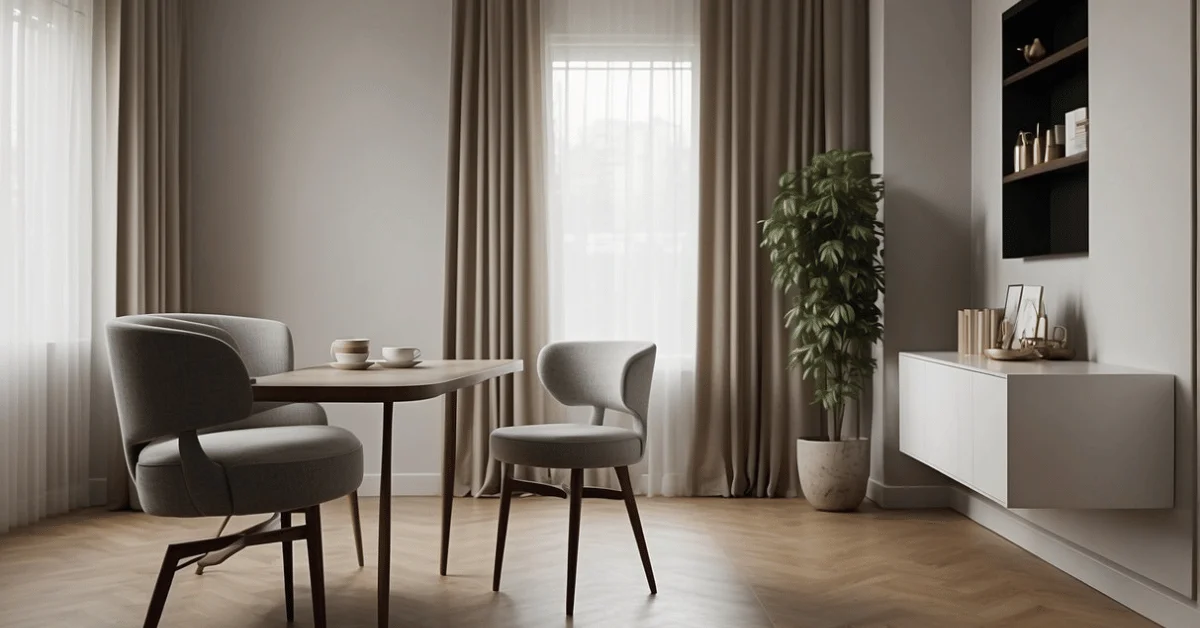Are you questioning yourself Am I a Minimalist or am I tired of feeling overwhelmed by my possessions? Do you find yourself constantly buying new things, only to feel unsatisfied shortly after?
If so, you may be wondering I am a minimalist.
Minimalism is not just about getting rid of your possessions, but about living a life that is focused on your values and priorities. As minimalist, we believe that by simplifying our lives, we can reduce stress and anxiety, and make more room for the things that truly matter. This can include spending time with loved ones, pursuing hobbies and passions, or contributing to our communities.
If you are unsure if you are a minimalist, don’t worry. Minimalism is a personal journey, and everyone’s path looks different. In the following sections, we will help you understand what minimalism is, provide practical steps to becoming a minimalist, and explore the impact of minimalism on your personal well-being, relationships, and finances.
Key Takeaways
- Minimalism is a way of life that focuses on your values and priorities.
- Becoming a minimalist is a personal journey that looks different for everyone.
- Practicing minimalism can lead to increased happiness, reduced stress, and more fulfilling relationships and experiences.
We Help You Understanding Minimalism
Are you wondering am I a minimalist? Do you want to learn more about minimalism? We are here to help you understand what minimalism is all about.
Philosophy of Minimalism
Minimalism is an intentional lifestyle that is centered around simplicity. It is a mindset that values experiences over possessions. Minimalists believe that clutter and excess can lead to stress and anxiety, and that by simplifying their lives, they can focus on what truly matters.
Minimalism is not about deprivation or living without anything. It is about being intentional with what you have and only keeping what adds value to your life. Minimalists may have fewer possessions, but they are often of higher quality and have a purpose.
Minimalism vs. Consumerism
Minimalism is often contrasted with consumerism, which is the belief that happiness and fulfillment come from buying and consuming more. Consumerism encourages people to constantly seek new and improved products, leading to a never-ending cycle of buying and discarding.
Minimalism, on the other hand, encourages people to be content with what they have and to focus on experiences rather than possessions. Minimalists who ask themself Am I a minimalist may still make purchases, but they do so intentionally and with a focus on quality over quantity.
Minimalism is often associated with stoicism, a philosophy that emphasizes self-control and the acceptance of the present moment. By living a minimalist lifestyle, individuals can practice stoicism by focusing on what they can control and letting go of what they cannot.
Our Practical Steps to Becoming a Minimalist
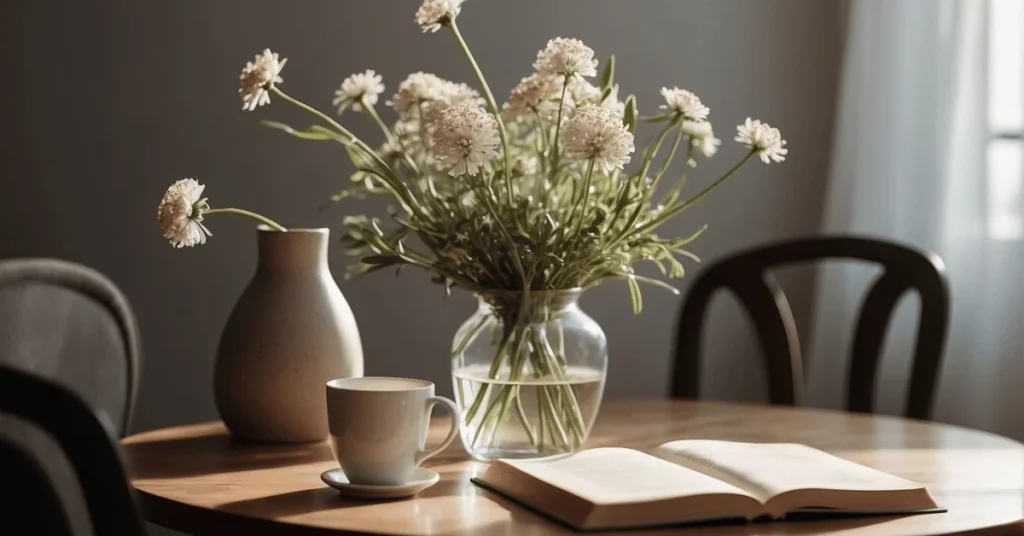
Are you wondering if you are a minimalist? If you’re looking to simplify your life and focus on the essentials, then you’re already on the right track. Minimalism is a lifestyle that emphasizes the importance of living with less, and it can be a powerful tool for reducing stress and increasing happiness.
Here are some practical steps that we can take to become a minimalist:
Decluttering Your Space
The first step to becoming a minimalist is to declutter your space. Start by getting rid of any items that you no longer need or use. This can be a difficult process, but it’s essential if you want to create a more minimalist home. Consider donating or selling items that are in good condition, and recycle or dispose of anything that is no longer usable.
Adopting a Minimalist Lifestyle
Minimalism is more than just decluttering your space. It’s a mindset that can be applied to all areas of your life. Adopting a minimalist lifestyle means focusing on the things that are truly important to you and letting go of everything else. This may mean cutting back on your commitments, simplifying your schedule, and prioritizing your relationships.
Minimalism in Daily Life
Incorporating minimalism into your daily life can help you stay focused and reduce stress. This can include simplifying your wardrobe, meal planning to reduce food waste, and minimizing the use of technology. By focusing on the essentials and eliminating distractions, you can create a more peaceful and fulfilling life.
Overall, becoming a minimalist is a gradual process that requires patience and dedication. By taking these practical steps, we can simplify our lives and focus on what truly matters.
The Impact of Minimalism on Your Personal Well-being ‘Am I a Minimalist?’
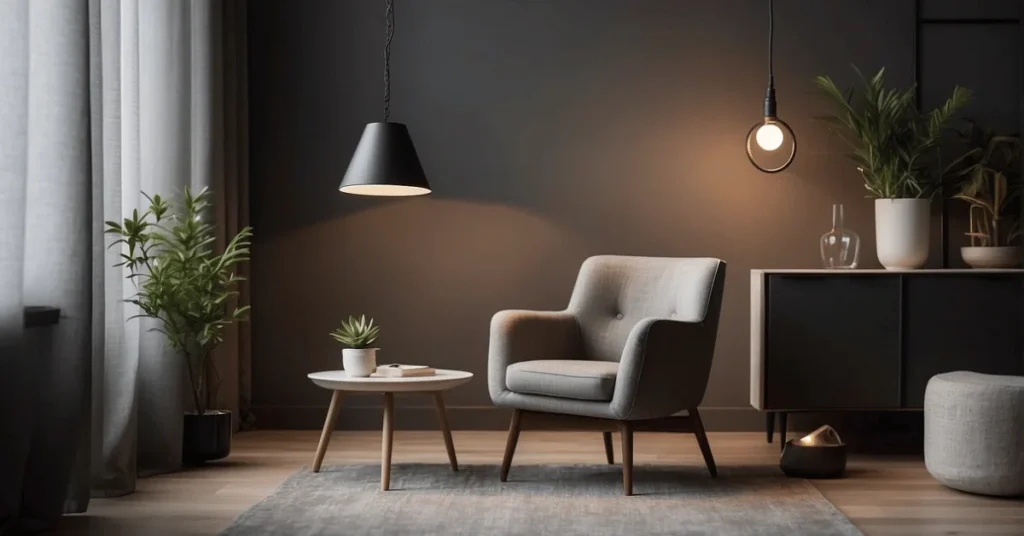
Minimalism is a lifestyle that is gaining popularity all over the world. It is a way of living that focuses on simplicity, intentionality, and mindfulness. Minimalism can have a significant impact on your personal well-being. In this section, we will explore the impact of minimalism on your mental and emotional health, as well as your physical health.
Mental and Emotional Benefits
Minimalism can have a positive impact on your mental and emotional health. By simplifying your life and reducing the number of possessions you have, you can reduce stress and anxiety. A cluttered environment can cause stress and anxiety, and minimalism can help you create a calm and peaceful space. When you have fewer possessions, you can focus on what is truly important in life, such as relationships, experiences, and personal growth. This can lead to increased happiness, contentment, and peace of mind.
Physical Health and Minimalism
Minimalism can also have a positive impact on your physical health. When you have fewer possessions, you have less to clean and maintain, which can free up time and energy for exercise and other physical activities. Minimalism can also help you make healthier choices, such as eating whole foods and reducing your consumption of processed foods and other unhealthy products. By simplifying your life, you can also reduce stress, which can have a positive impact on your physical health.
Minimalism in Relationships and Social Life
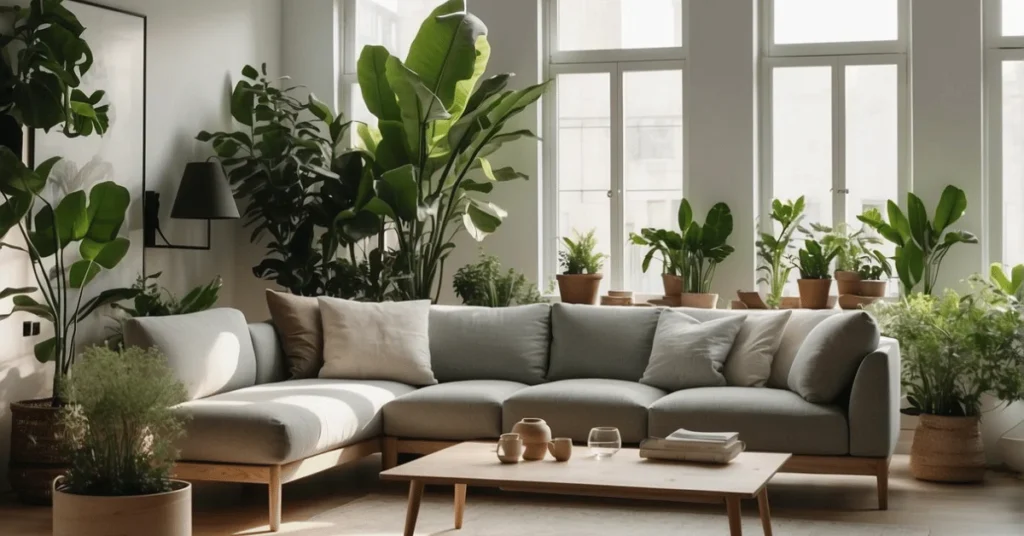
As questioning ourself am I minimalists, we strive to simplify our lives and focus on what truly matters. This includes our relationships and social life. By being intentional and mindful in our interactions with others, we can cultivate deeper connections and live a more fulfilling life.
Family and Minimalism
When it comes to family, minimalism can help us prioritize quality time over material possessions. Instead of buying gifts for the sake of buying, we can focus on creating meaningful experiences together. This can be as simple as having a family game night or going for a walk together.
Minimalism also encourages us to let go of any emotional baggage that may be holding us back in our relationships with family members. By being aware of our own feelings and communicating openly and honestly, we can strengthen our bonds and create a more positive family dynamic.
Friendship and Community
In our social life, minimalism can help us focus on quality over quantity. Instead of trying to maintain a large number of superficial friendships, we can invest our time and energy into a few close relationships that truly matter to us. This can lead to a deeper sense of connection and support in our lives.
Minimalism also encourages us to be more aware of our impact on our community and the world around us. By being mindful of our consumption habits and making conscious choices, we can contribute to a more sustainable and compassionate society.
Our Tips for Financial Freedom Through Minimalism
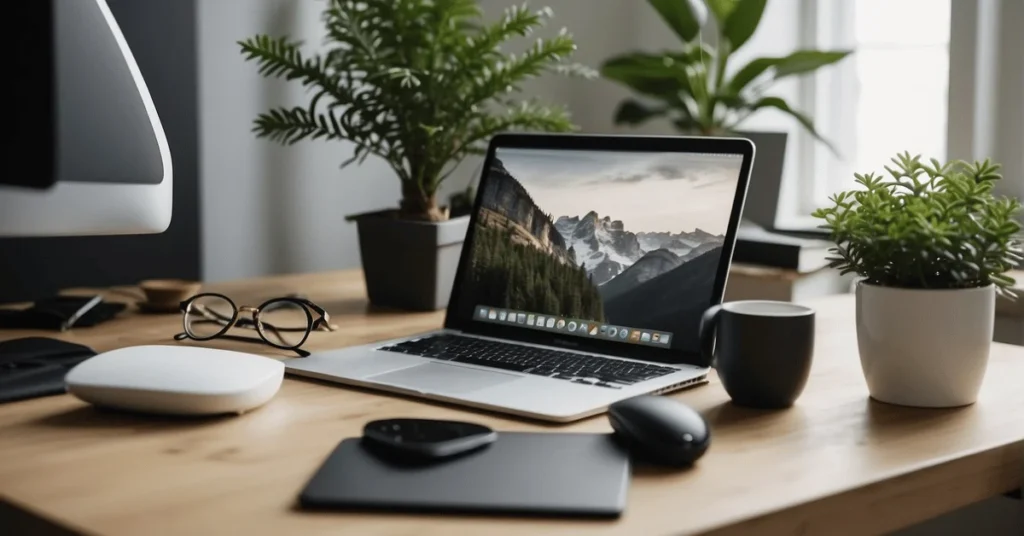
As minimalists, we believe that financial freedom is not about how much money you make but how much you keep. It’s about living a simpler life and making conscious choices about your finances. Here are some tips that can help you achieve financial freedom through minimalism.
Budgeting and Spending
One of the most important aspects of financial freedom is budgeting and spending. By creating a budget, you can track your expenses and identify areas where you can save money. This can be done using a spreadsheet, an app, or even a pen and paper. The key is to be consistent and realistic about your spending habits.
Another way to save money is by adopting a minimalist lifestyle. This means cutting back on unnecessary expenses and only buying what you need. For example, instead of buying a new outfit for every occasion, you can invest in a few high-quality pieces that can be mixed and matched.
The True Cost of Possessions
Asking yourself Am I a minimalists, we believe in owning less and experiencing more. This means understanding the true cost of possessions and how they affect our finances. For example, a car may seem like a necessary expense, but when you factor in the cost of insurance, maintenance, and gas, it can quickly become a burden.
By adopting a minimalist mindset, you can learn to appreciate the things that matter most and let go of the rest. This can help you save money, reduce stress, and live a more fulfilling life.
Frequently Asked Questions
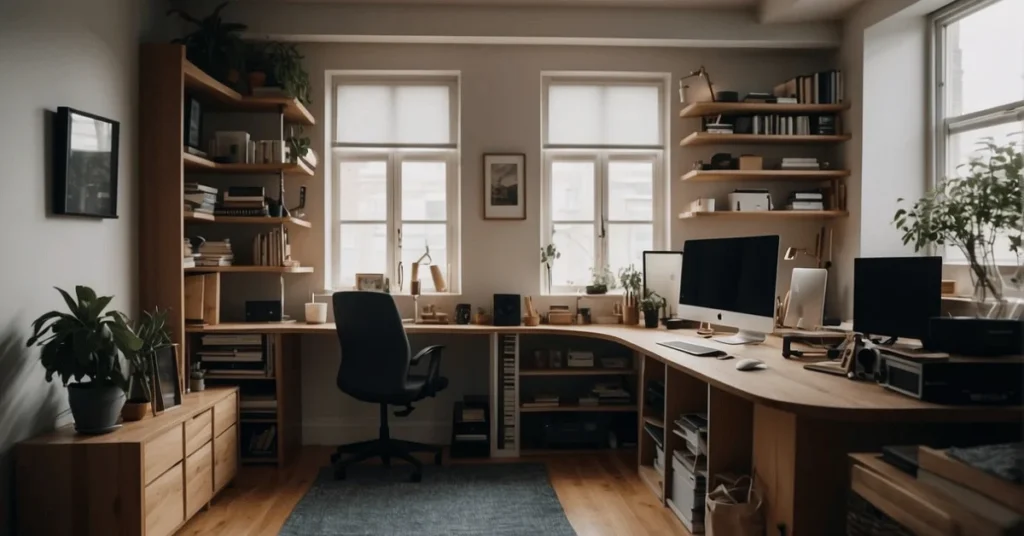
How can I determine if my lifestyle aligns with minimalism?
If you are wondering whether your lifestyle aligns with minimalism, ask yourself if you value simplicity, intentionality, and mindfulness. Minimalism is about living a deliberate life with less clutter, both physical and mental. If you find yourself feeling overwhelmed by your possessions, schedule, or responsibilities, you may benefit from embracing a minimalist mindset.
What are the defining characteristics of a minimalist person?
A minimalist person is someone who intentionally lives with fewer possessions, commitments, and distractions. They prioritize experiences over material possessions and focus on what truly adds value to their life. Minimalists also tend to prioritize sustainability and ethical consumption, opting for high-quality, long-lasting items over disposable or fast fashion.
What behaviors typically indicate a minimalist mindset?
Behaviors that typically indicate a minimalist mindset include decluttering regularly, buying only what is necessary, and living within one’s means. Minimalists also tend to prioritize experiences over possessions, seek out high-quality and long-lasting items, and practice mindfulness in their daily lives.
How does one transition to a minimalist lifestyle?
Transitioning to a am I a minimalist lifestyle can be a gradual process. Start by decluttering your possessions, identifying what truly adds value to your life, and prioritizing experiences over material possessions. It may also be helpful to set boundaries with your time and commitments, practice mindfulness, and focus on sustainable and ethical consumption.
What are the core differences between a minimalist and a maximalist?
The core difference between a am I a minimalist and a maximalist is their approach to possessions and experiences. A minimalist intentionally lives with fewer possessions and commitments, prioritizing what truly adds value to their life. A maximalist, on the other hand, tends to accumulate possessions and experiences, often seeking out novelty and variety.
Can you be a minimalist without owning very few possessions?
Yes, you can be a minimalist without owning very few possessions. Minimalism is about intentionally living with less, not necessarily owning the fewest possessions possible. It is more about prioritizing what truly adds value to your life and letting go of what does not.
We’ve discussed the principles of minimalism, but now it’s your turn to chime in! Are you embracing minimalism in your life? Share your experiences, tips, or questions on whether you ask yourself am I a minimalist. Join the conversation in the comments below!

